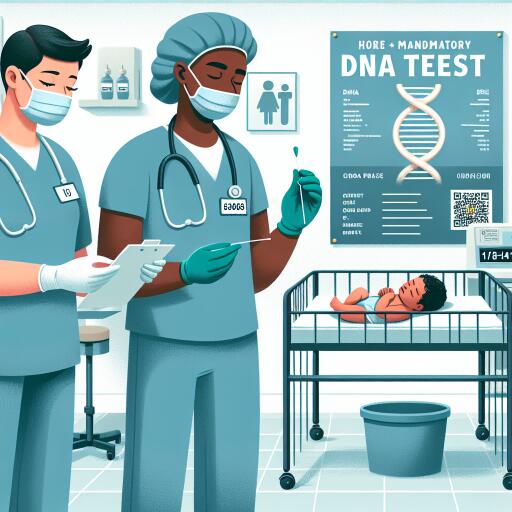DNA Testing at Birth: A Mandatory Measure for a New Era?
In the realm of family and genetics, the unveiling of truth from the very first cry of life could herald a new standard. The proposal at hand is not a matter of mere convenience but a profound pivot towards preemptive clarity in familial bonds and health predispositions. The discourse suggests an embrace of DNA testing as a cardinal step immediately after a child’s birth, aligning it with the existing medical evaluations routinely conducted in the neonatal phase.
The crux of this dialogue pivots on the fact that apprehensions surrounding DNA testing stem largely from its potential to uncover uncomfortable truths, thereby casting shadows of distrust. However, such a perspective overlooks the invaluable foresight and understanding DNA tests provide. Not merely a tool for establishing paternity, these tests unlock a vital compendium of genetic knowledge, paving the way for insights into inherited health conditions and potential risks that may lie ahead.
The advocacy for mandatory DNA testing at birth is anchored in the belief that the benefits far outweigh the perceived breach of trust. It posits that the clarity and certainty achieved from the outset can fortify familial relationships rather than undermine them. Furthermore, it emphasizes that in an era where medical science continues to leap forward, the importance of equipping individuals and their families with comprehensive genetic information from day one becomes undeniably critical.
This proposition also illuminates a pathway towards personalized medical care from a tender age, enabling preventative strategies tailored to the unique genetic makeup of each newborn. The long-term benefits of such an approach can manifest in reduced healthcare costs and more significantly, in a higher quality of life.
In essence, the call for mandatory DNA testing at birth serves as a clarion call to reassess our values and priorities in the light of advancements in genetic science. It invites us to envision a future where knowledge empowers, transparency is cherished, and health prognostics guide us towards more informed decisions for our offspring and generations to follow.









